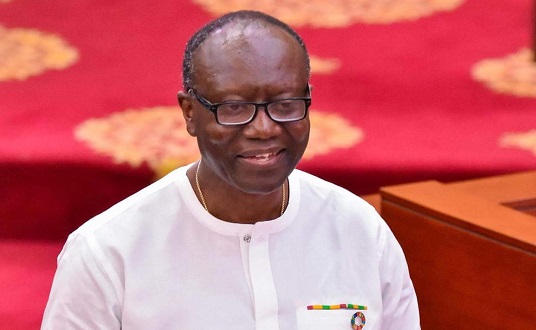As the highly anticipated 2023 mid-year fiscal policy review approaches, the Ghanaian government exudes unwavering confidence in its ability to maintain economic stability and foster growth without resorting to a supplementary budget, according to well-placed sources.
Scheduled for presentation to parliament next week, the upcoming review is set to prioritize cementing economic measures in alignment with the Post-COVID-19 Programme for Economic Growth (PC-PEG), underpinned by the three-year Extended Credit Facility agreement with the esteemed International Monetary Fund (IMF).
At the heart of the government’s economic objectives lies an unyielding commitment to comprehensive structural reforms outlined in the PC-PEG. Key pillars of these transformative reforms encompass strategic areas such as tax policy and administration, prudent expenditure control and arrears clearance, effective debt management, fostering financial stability, governance and anti-corruption initiatives, and ambitious reformation of the energy and cocoa sectors.
Emphasizing fiscal consolidation, revenue enhancement, and structural measures, the 2023 mid-year fiscal policy review seeks to solidify economic stability and spur growth, all within the ambit of the Post COVID-19 Programme for Economic Growth, without the need for a supplementary budget. The government remains steadfast in upholding its dedication to robust structural reforms, fortifying the bedrock of its economic strategy.
Preliminary budget execution data sourced from the Bank of Ghana for the period from January to May 2023 exhibits encouraging progress in the government’s fiscal consolidation endeavors. Impressively, the broad cash deficit registered during this period stood at a mere 1.8 percent of GDP, significantly outperforming the targeted 4.0 percent of GDP.
Further bolstering the optimism, the primary balance exhibited a deficit of GH¢1.2 billion (0.1 percent of GDP), notably better than the envisaged deficit of GH¢6.7 billion (0.8 percent of GDP). Notwithstanding revenue and grants falling short of the target, the government diligently exercised tight control over total expenditure, which amounted to GH¢59.5 billion (7.4 percent of GDP), considerably below the target of GH¢82.8 billion (9.5 percent of GDP). Intriguingly, GH¢11.7 billion was efficiently sourced from domestic channels to finance the cash deficit.
Resolute in the face of revenue challenges, the government astutely executed measures to control expenditures, thus ensuring fiscal stability. Additionally, the authorities remain watchful in managing financing risks while striving to enhance revenue mobilization and judiciously align expenditures with incoming revenues, all serving the overarching goal of advancing fiscal consolidation efforts.
This methodical approach seeks to foster credibility, rekindle investor confidence, support the disinflation process, and cement the nascent economic stability that Ghana has been earnestly striving to achieve.
Despite lingering concerns over revenue shortfalls, the stringent control over expenditures, including interest savings garnered from the debt and debt service suspension, alongside domestic debt restructuring, has allowed the government to maintain its course of fiscal consolidation.
A noteworthy portion of the prudently controlled expenditure is attributable to interest savings amounting to GH¢34 billion, arising from the initial domestic debt exchange programme in 2023. Moreover, the ongoing restructuring of domestic dollar bonds and external debt is poised to yield further interest savings, thus fortifying the fiscal position and facilitating arrears clearance. In a buoyant outlook, the government anticipates favorable revenue impacts in the latter half of 2023, courtesy of three new revenue measures that came into effect on May 1, 2023.
With unyielding determination and combined efforts, the government retains a sanguine outlook on sustaining the momentum of fiscal consolidation, thereby contributing to the restoration of fiscal and debt sustainability. Financial analysts, however, caution on the significance of continued vigilance and the meticulous execution of fiscal policies to ensure the longevity of the hard-won economic stability.
The entire nation now awaits the forthcoming 2023 mid-year fiscal policy review with bated breath, eager to witness the government’s detailed plan to navigate the economic landscape for the latter half of the year. Should the government’s projections materialize, this momentous achievement could potentially mark a transformative milestone in Ghana’s economic recovery, catalyzing renewed investor confidence and inspiring the nation’s citizenry alike.
Source: thebftonline





